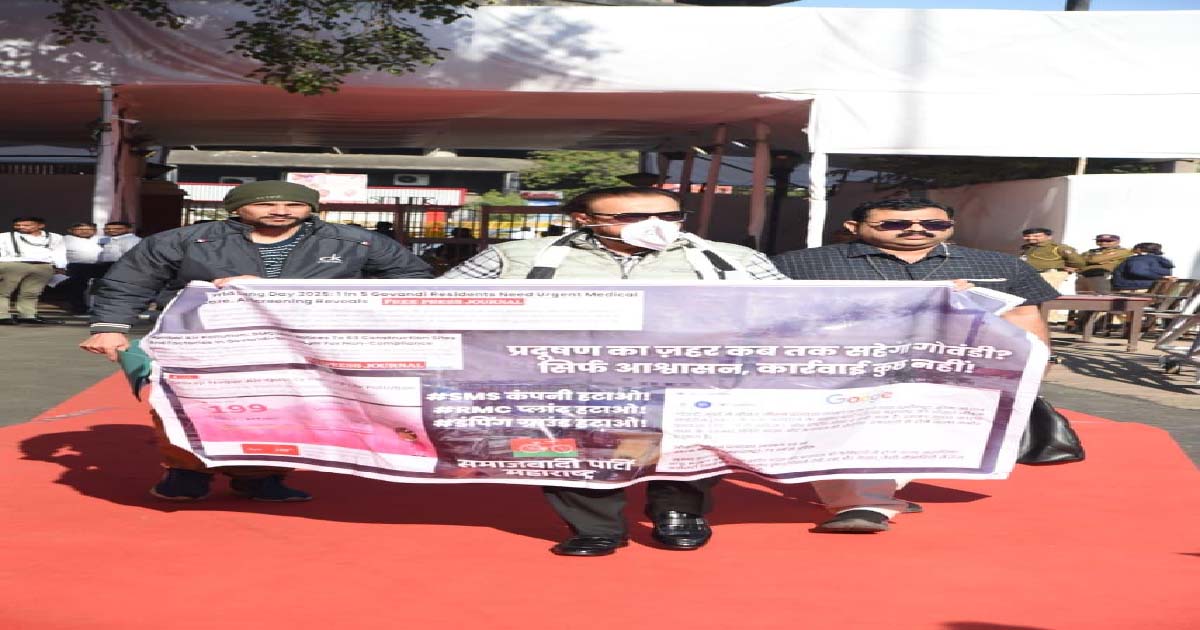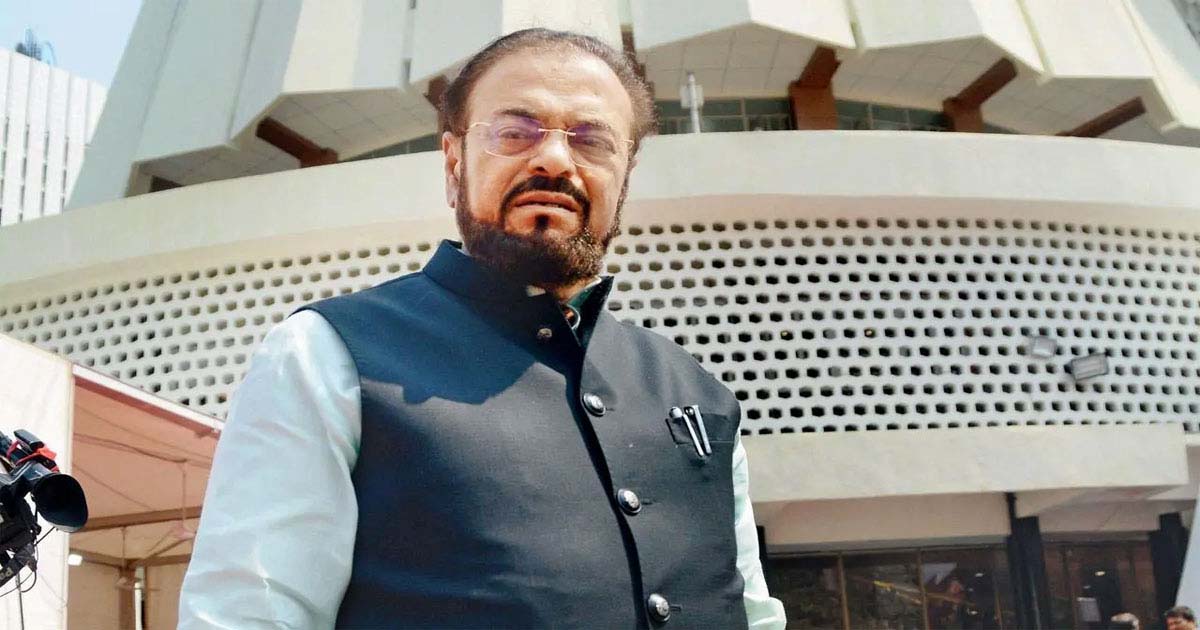Maharashtra
Mira Bhayandar: MBMC Suspends Licenses Of 9 Diagnostic Centers For Violating PCPNDT Act To Prevent Female Infanticide

Mira Bhayandar: The health department attached to the Mira Bhayandar Municipal Corporation (MBMC) has suspended the licenses of nine diagnostic centres in the twin-city for allegedly defying the provisions mandated under the Pre-conception and Pre-natal Diagnostic Techniques (Regulation and Prevention of Misuse) (PCPNDT) Act, 2003 which aims at preventing female infanticide.
The suspension periods are for various periods ranging from seven days to one month. In response to state government directives, officials from the health department had launched an extensive 21-day long inspection campaign at all diagnostic centres in the twin-city.
Nine centres were found to be flouting the various norms of the act-mostly erratic documentation which indicates wrongdoings. Based on the review process by the advisory committee to ascertain the nature of violations, MBMC’s Chief Medical Officer -Dr. Pramod Padwal in his capacity as the appropriate authority for cases related to PCPNDT, suspended the licenses of six centres for a week and the remaining three for a month.
The ultrasound machines of the centres were also sealed by the health department personnel. “We regularly conduct inspections once every three months, to detect if there are any anomalies, but this was a comprehensive drive.” said a health officer.
There were a total of 1229 medical establishments including- 223 hospitals, 878 clinics/ dispensaries, 58 pathology labs and 70 diagnostic centres registered with MBMC’s health department till last year. However, considering more additions and the presence of illegal ones, the actual figure could be much higher, sources said.
The Pre-Conception and Pre-Natal Diagnostic Techniques (Prohibition of Sex Selection) Act, or PCPNDT Act, was passed in 2003 as an amendment to the Pre-Natal Diagnostic Techniques (Regulation and Prevention of Misuse) Act of 1994. The PCPNDT Act aims to improve the regulation of sex selection technology and prevent the misuse of prenatal diagnostic techniques.
Maharashtra
Azmi’s unique protest… Wearing a mask, he reached Nagpur Assembly with a banner demanding effective action to end toxic air pollution in Mumbai, SMS company

Mumbai: Air pollution and toxic atmosphere are common in Mankhurd Shivaji Nagar. The people of Shivaji Nagar and Govindi are facing toxic fumes every day. Successive governments have neglected this area because it is a poor neighbourhood.
On the second day of the winter session of the Assembly today, the Samajwadi Party (SP) made a clear demand.
It has demanded the immediate closure of the SMS company, RMC plant, and dumping ground and made it clear to the government that it should stop playing with the lives of the common man.
The government should take effective steps to eliminate this toxic air pollution. Abu Asim Azmi said that due to the SMS company in Govandi, the average age of people has increased to 39 years and diseases are spreading due to burning waste and chemical materials in it, so it should be banned immediately. He further said that clean sanitation and other facilities should be available in Govandi and such a factory should be closed so that the people can live a healthy life. Abu Asim Azmi protested against the toxic air outside the Nagpur Assembly in a very unique way by holding a banner and wearing a mask.
Maharashtra
Increase in crime incidents in Mankhurd Shivaji Nagar, demand for action against drug dealers and drug users, Abu Asim demands in Nagpur Assembly

Mumbai: Due to the increase in crime incidents in Mumbai’s Mankhurd Shivaji Nagar, the law and order situation is dire. Due to the shortage of police manpower, it is difficult to control crimes. Three murders have been committed here in three months. The increasing incidents of crime. Maharashtra Samajwadi Party leader and MLA Abu Asim Azmi, while addressing the Nagpur winter session, expressed concern and said that he demanded an increase in the police manpower and the establishment of a new police station in Shivaji Nagar so that criminal elements can be curbed. Along with this, he has also demanded action against drug and drug addicts here. Abu Asim Azmi told the House on a notice seeking attention that there has been an increase in murders, attempted murders and robberies last month. A 24-year-old coconut vendor was murdered over a money transaction. The second murder was committed due to personal enmity and the third murder was committed due to drug dealing. The police are investigating this case in connection with drugs. Mankhurd Shivaji Nagar is a poor area. The law and order situation here is bad due to drug addicts and drug dealers. The population here has also increased immensely. Whenever a road expansion or other project is started somewhere, people are rehabilitated here. That is why there is a shortage of police here. Even after setting up a bat post, there is no police in it because there is a shortage of police manpower. In such a situation, Azmi has demanded that police be deployed here.
Maharashtra
Mumbai: Hajra, wife of builder Riaz in Kurla, accused of illegal abortion, Kherwadi police registers case against mother

Mumbai: An incident has come to light in Mumbai in which a case has been registered against a mother for illegally aborting a pregnancy. Kherwadi police have registered a case of abortion against the second wife of Kurla builder Riaz Shah. On December 7, Riaz Shah’s son filed a complaint in which it was stated that Hajra Shah had miscarried a 24-month-old child. The abortion was done using contraception in 2024 and on the complaint of this illegal act, the police have registered a case against Hajra and her brother Ashfaq under sections 88, 91, 238 of the BNS. This is the first case of its kind in which a case has been registered against the mother for wasting contraception. In 2024, when Riaz Shah asked his wife where the child was, she said that she had miscarried and that she had done the autopsy of the newborn in the Kurla Sunni graveyard and her brothers Ashfaq and Imran Lado knew about this. When Riaz checked in the graveyard, no record of the newborn was found, after which the police registered a case of misleading and aborting the child. Junaid Riaz Shah has filed a complaint against Liya. The police are investigating the matter further.
-

 Crime3 years ago
Crime3 years agoClass 10 student jumps to death in Jaipur
-

 Maharashtra1 year ago
Maharashtra1 year agoMumbai Local Train Update: Central Railway’s New Timetable Comes Into Effect; Check Full List Of Revised Timings & Stations
-

 Maharashtra1 year ago
Maharashtra1 year agoMumbai To Go Toll-Free Tonight! Maharashtra Govt Announces Complete Toll Waiver For Light Motor Vehicles At All 5 Entry Points Of City
-

 Maharashtra1 year ago
Maharashtra1 year agoFalse photo of Imtiaz Jaleel’s rally, exposing the fooling conspiracy
-

 National News1 year ago
National News1 year agoMinistry of Railways rolls out Special Drive 4.0 with focus on digitisation, cleanliness, inclusiveness and grievance redressal
-

 Maharashtra1 year ago
Maharashtra1 year agoMaharashtra Elections 2024: Mumbai Metro & BEST Services Extended Till Midnight On Voting Day
-

 National News1 year ago
National News1 year agoJ&K: 4 Jawans Killed, 28 Injured After Bus Carrying BSF Personnel For Poll Duty Falls Into Gorge In Budgam; Terrifying Visuals Surface
-

 Crime1 year ago
Crime1 year agoBaba Siddique Murder: Mumbai Police Unable To Get Lawrence Bishnoi Custody Due To Home Ministry Order, Says Report












